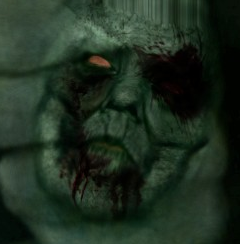
Texture Face! Zombie Wall!
The Day Two doldrums. The “This idea will not sustain itself over thirty days” moments. The “If I just sneak out the back door, will anybody notice I’ve stopped writing?” blahs.
Meant to write a short intro and then set up a series of flashbacks and whatnot but here I am just writing writing writing in the present, Zach rambling on about how much being a zombie sucks/is awesome.
Anyhow. Zach and a crew of 1500 zombies have stacked up outside Woodfield Mall….
You could tell there were people inside — hastily made signs, red paint smeared across sheets of plywood leaning up against the entrance announced a group of refugees hoping for government rescue. They’d taken to doing that, marking their hideouts on the off chance a National Guard regiment happened to be passing through and happened to feel like taking on a dozen or more hungry, whining mouths who were more likely to get the whole group killed than they were to be of any use to anybody down the road. The refugees — some even called themselves survivors; I always thought that was a bit like counting their chickens before they were hatched — didn’t know what I knew: Uncle Sam had stopped giving a shit about rescue missions a long time before. But, what the hell, right? Z can’t read, so what could it hurt? Except, you know, I can read. God, it was nasty, somehow worse than Milwaukee, which was just about the worst thing I’ve ever seen. And, I don’t know, I mean, the virus did a number on me too, nearly killed everything in me that was human, made me numb to that kind of stuff — like, I wouldn’t think twice about stepping on a kitten’s throat, you know? The word “cute†doesn’t have a place in my vocabulary anymore — but there was still that little thing, that little twinge, something sticking in the back of my throat, hiding behind that Explorer, waiting for my bros to do their thing. Something like, “Don’t you feel sorry for all those poor folks who are getting ripped to shreds right now? Don’t you remember when you used to be like them, afraid of the dark? Afraid of the unknown? Using every last resource at your disposal just to fight to live and breathe for one more day?†And I thought, Yeah, I remember. I remember how much it sucked. And you know how kick ass it is to be the dominant life force on the planet? And the voice, the sticking in my throat, the whatever, it was quiet, it was gone, because it knew I was right. We Zs might be a cancer on the face of the Earth, but, fuck, cancer was God’s equalizer, and when man finally figured out how to cure it, God was all, “Here’s something new, assholes.†Blam. Westphail. And every poor bastard who went Stage IV with it was now on the next step of the evolutionary ladder, kicking ass and not even bothering to take names, because why would a name matter to Z? That’s how badass Z is: he’s beyond the need for names.
It took all of three hours for my undead army to clear the mall. First the shooting stopped — a group of suburbanites is only going to have so much ammo, especially in the gun shy Chicago metropolitan area — and then the screaming stopped. A lone Z emerged from the shattered glass and wood of a formerly-boarded up Macy’s display window. He stumbled on a broken mannequin and took a tumble, tangled in broken plaster and lathe. I made my way across the parking lot and picked the poor guy up, put him back on his feet. He showed no gratitude — the bastard! — and kept shuffling off in the direction I’d pointed him.
“Hey, buddy!†I called after him, pointing over my shoulder at the mall. “Is it all good in there?â€
He didn’t respond. Not even a moan. You’ve heard of feeling lonely in a crowd, right? Try being with 1500 of your brethren and they don’t even pay one bit of attention to you. That’s how you know you’re one of them, by the way — they don’t try to eat you. But anything they’re not trying to eat? They just ignore it. So here I am, hanging out with all these …things… and I still, I don’t know, I still feel that urge to have basic interactions, there’s still that thing inside me.
Look, in life, I wasn’t a very social person. I’d rather have stayed home on a Friday night, maybe watch a little TV, some football, whatever. I was cool with not seeing a single person all weekend long. If I ordered food? I’d do it online, as little interaction as possible. But here, now, without the option for any real human contact? It’s kind of a downer, really, rolling down the street with 1500 people, whatever, and nobody’s talking? Everybody’s focused on one thing, they’ve got their eyes on the prize, and that prize is more or less the total destruction of the human race. Yeah, it’s kinda a bummer. But, hell, at least they let me hang out with them. Smoothies don’t want me around anymore, and who can blame ‘em? I’m a constant reminder of everything bad in the world, and, to be honest, a constant threat. They don’t know when I might eat them.
So yeah, I’m the loneliest boy in the world, boo hoo.
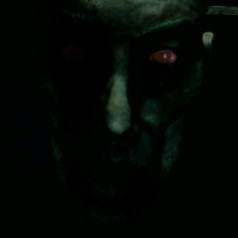
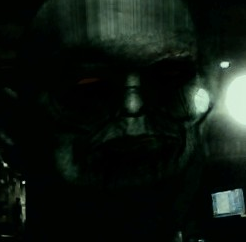
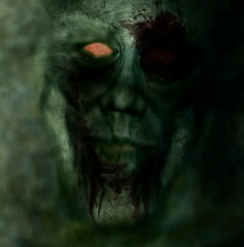
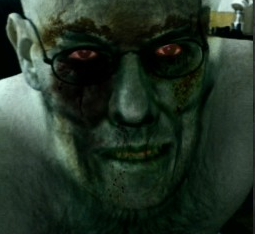
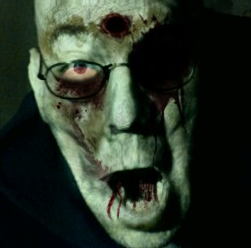

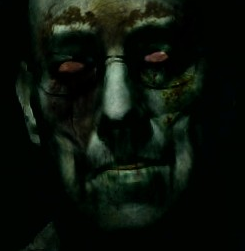
![Picture_033[1]](http://www.illinoir.com/wp/wp-content/uploads/2010/11/Picture_0331-300x240.jpg)
